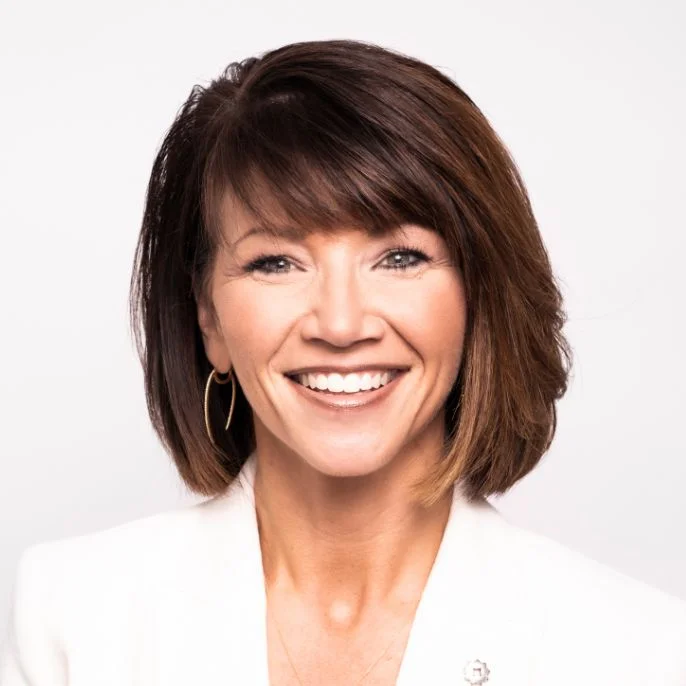Why Practical Empathy Is the Skill Your Workplace Needs Right Now

Updated on
March 17, 2025
17
March
2025
Empathy is essential to a thriving workplace culture. But practicing empathy is easier said than done. That’s a critical insight from this year’s O.C. Tanner Global Culture Report. And it is spot on.
For years we’ve been telling managers, “Be empathetic. Make sure you’re listening with compassion so that everyone feels seen and understood.” But that task has been assigned without any explanation of what empathy is, why it matters, and how to practice it in a meaningful way.

Despite its importance, the practice of empathy—the ability to understand and share the feelings of another—is facing challenges from several threats. To start, due to the amount of empathy that’s been required in recent years, there is mounting evidence of empathy fatigue among managers. Mid-level leaders are feeling caught between the increasing demands of senior leadership and the seemingly unending needs of team members which can be at odds.

We must remove the burden from leaders who feel conflicted between the business requirements of the organization and the natural desire to help their people. Unless we communicate clearly what empathy means in our workplaces and make it easier to practice empathy, our call for empathetic leadership will only contribute to stress and burnout.
A bit ironic, right? So how can we teach, train, and support empathetic leaders with a little more empathy ourselves?
What is empathy?
A simple definition of empathy is the ability to understand and share the feelings of another. But for leaders in the workplace, it’s something more. It’s the ability to make connections between a person’s potential and the circumstances or systems holding them back. Then taking action to remove them.
Why does empathy matter in the workplace?
Business leaders often talk about an empathetic culture and a performance culture as if the two are diametrically opposed. And that’s simply not true. Tapping into the full potential of your people is the holy grail for business leaders. And empathy is all about helping people reach their full potential.
We all know fear is a motivator, but so is love. When we harness the power of love—love of team, of community, of shared purpose, of growth, of accomplishment—we light a fire in people that is stronger and more enduring than fear. Empathy is a form of love. So, when we create a powerful culture of empathy, where people are encouraged to understand and support each others’ needs, we increase productivity and business results as well.
Creating deeper relationships with other humans in the workplace is fuel for accomplishment. And you can’t have it without empathy.
It’s impossible to underestimate the power of connection, of belonging, and of feeling like part of a team. Having a relationship to other humans in the workplace is fuel for accomplishment. It makes the whole greater than the sum of its parts. And you can’t have any of it without creating an environment of practical empathy.

If you believe you’ve hired the right people to solve the right problems, but for some internal or external reason they are holding back, empathy can bridge that. It frees people from distractions and obstacles that keep them from solving whatever problem it is you’ve hired them to solve.
People feel safest and most empowered to perform and do their best when empathy is deeply woven into the organization’s ethos. In fact, a culture where leaders turn empathy into action improves the odds of above average employee engagement by 1388%.
A practical approach to empathy
While there is evidence that empathy is a key to success, there is very little consensus on how to apply it. We may seek to understand what another person is thinking and feeling, but that’s not enough to resolve an issue or make a meaningful difference in their work. According to our research in the O.C. Tanner Institute, for empathy to be effective, it needs to be supported by action. It’s an approach we call practical empathy.
Beyond the traditional definition of empathy—the ability to understand and share the feelings of another—practical empathy is a practice of care. It focuses on understanding another’s needs and then moving to act on their behalf. Consequently, it also requires systems that help leaders offer employees resources when issues exceed the leader’s scope of capability or influence.

Think of a leader’s role applying empathy in three simple steps: 1) Seek to understand that everybody is doing the best they can. 2) If someone’s “best” is not meeting a standard you expect, listen to their needs, and identify things you can do to provide the conditions necessary for their growth. Then 3) Do them. That’s empathy in a nutshell.
Sometimes we get so wrapped up in policies and procedures that we forget to ask, “If I were in this person’s shoes and doing the best I can, but still falling short, what would I need? A conversation? Training? Resources? Support outside of work?”
Imagine a practical empathy conversation that begins something like this: “How are you doing? I believe you’re giving all you can right now. But help me understand what’s in your way? How can we remove barriers to your success? How can we help you show up and contribute in a way that’s fulfilling for you?” Then listen for ways to help.
No attempt at empathy is complete until action is taken to improve conditions for the employee you are trying to help.
Creating systems for success
It’s not fair to expect leaders to apply practical empathy—where understanding is combined with action—unless they have the proper training and resources.
Think about it. Every worthwhile business expectation comes with a system to ensure its completion. When you expect integrity, there is an audit system. When you expect quality, there is an inspection system. But sometimes with soft skills there is no system. So, you need to think about what systems you can have in place to support your expectations around empathy.
For empathy, resources are the system.
At O.C. Tanner, if an employee says “I’m in a personal financial emergency,” our system is an employee crisis fund called Tanner Cares. If they got into that financial crisis because they need help living within their means, our system is a budgeting tool called Smart Dollar. If someone has a mental health or emotional crisis, our system is to provide access to onsite behavioral health counseling or our Employee Assistance Program.
Not long ago, we struggled to provide a system when an employee said, “I need to get to a doctor, but I can’t find the time or resources.” So, we opened an on-site Health Center, added a bucket of “Health Center Time” to our timekeeping system, and encouraged employees and their families to use these resources. This resource became acutely advantageous during the pandemic for our people and our business and remains a system of care and support for leaders to practice practical empathy by referring employees with health concerns.

For empathy, resources are the system. If you want to close the loop and help your managers support empathy with action, it’s really all about asking, “what are the systems and resources our people need,” and then building them.
It’s the little things
All of that said, empathy doesn’t always show up in extraordinary gestures. In fact, it’s most often manifested in small actions that make a difference. I’ve seen so many leaders who know how to show up and help a team member at just the right time, following a little hunch.
Take the manager who knew their team’s tardiness policy was essential but noticed it temporarily didn’t fit one employee’s life situation. Consequently, she said, “I know your family is down to one car right now, so I’m going to swing by and pick you up for a couple of weeks. Would that be helpful?” This example shows a leader setting a necessary expectation, but understanding an individual need and offering a practical resource.
Setting an expectation of empathy as a core value or leadership trait is often as simple as asking everyone to simply see each other as humans. It’s teaching leaders to follow their intuition and not think, “Oh, it’s the weekend, I’m not sure I should text and ask how their kid is doing after surgery right now.” Instead, let’s share a good litmus test for empathy by teaching everyone to think, “how would I feel if someone did that for me?” If the answer is, “well, that would feel awesome,” well then, let’s do it.
The more we can create relationships that enable us all to focus on the person, seek understanding, and take supportive action enabled by systems of support, the more connected, productive, and joyful our workplaces will become.
O.C. Tanner develops ongoing research reports on the trends, statistics, and perceptions that are shaping workplace cultures around the world. Learn more at octanner.com.
Mindi Cox works to connect people with purpose to deliver human-centered business results. Currently serving as O.C. Tanner’s Chief Marketing & People Officer, she believes an organization’s potential is intimately tied to its sense of humanity. After more than two decades in Sales, Marketing and as a Human Resource Executive for O.C. Tanner, her core goal remains that same: to help cultivate workplace cultures where individuals feel connected to the greater purpose and impact of their work, inspiring people to seek personal and professional progress.
Mindi has been honored with various awards for her work including Silicon Slopes’ Chief People Officer of the Year in 2023, Human Resource Executive of the Year by the Stevie Awards for Great Employers and Human Resource Executive of the Year by Utah Business Magazine. She was also recently named among the 30 Women to Watch in Utah Business. She is a member of the Forbes Human Resource Council and is frequently sought after to contribute to podcasts, books, and articles focused on workplace culture and people leadership. Professionally, she is most proud of her role in the leadership and culture work that has resulted in O.C. Tanner being named three times to the Fortune 100 Best Companies to Work For list and what that means for the workplace goodness the people of O.C. Tanner experience every day. She is SPHR and SHRM – SCP certified and also holds a bachelor’s degree in journalism along with an M.B.A. from the University of Utah. She is the proud mom to three busy sons and is grateful for the perspective her crew gives her on work, life, wellbeing and whole-life awareness as a business priority.
Mindi Cox works to connect people with purpose to deliver human-centered business results. Currently serving as O.C. Tanner’s Chief Marketing & People Officer, she believes an organization’s potential is intimately tied to its sense of humanity. After more than two decades in Sales, Marketing and as a Human Resource Executive for O.C. Tanner, her core goal remains that same: to help cultivate workplace cultures where individuals feel connected to the greater purpose and impact of their work, inspiring people to seek personal and professional progress.
Mindi has been honored with various awards for her work including Silicon Slopes’ Chief People Officer of the Year in 2023, Human Resource Executive of the Year by the Stevie Awards for Great Employers and Human Resource Executive of the Year by Utah Business Magazine. She was also recently named among the 30 Women to Watch in Utah Business. She is a member of the Forbes Human Resource Council and is frequently sought after to contribute to podcasts, books, and articles focused on workplace culture and people leadership. Professionally, she is most proud of her role in the leadership and culture work that has resulted in O.C. Tanner being named three times to the Fortune 100 Best Companies to Work For list and what that means for the workplace goodness the people of O.C. Tanner experience every day. She is SPHR and SHRM – SCP certified and also holds a bachelor’s degree in journalism along with an M.B.A. from the University of Utah. She is the proud mom to three busy sons and is grateful for the perspective her crew gives her on work, life, wellbeing and whole-life awareness as a business priority.
Mindi Cox works to connect people with purpose to deliver human-centered business results. Currently serving as O.C. Tanner’s Chief Marketing & People Officer, she believes an organization’s potential is intimately tied to its sense of humanity. After more than two decades in Sales, Marketing and as a Human Resource Executive for O.C. Tanner, her core goal remains that same: to help cultivate workplace cultures where individuals feel connected to the greater purpose and impact of their work, inspiring people to seek personal and professional progress.
Mindi has been honored with various awards for her work including Silicon Slopes’ Chief People Officer of the Year in 2023, Human Resource Executive of the Year by the Stevie Awards for Great Employers and Human Resource Executive of the Year by Utah Business Magazine. She was also recently named among the 30 Women to Watch in Utah Business. She is a member of the Forbes Human Resource Council and is frequently sought after to contribute to podcasts, books, and articles focused on workplace culture and people leadership. Professionally, she is most proud of her role in the leadership and culture work that has resulted in O.C. Tanner being named three times to the Fortune 100 Best Companies to Work For list and what that means for the workplace goodness the people of O.C. Tanner experience every day. She is SPHR and SHRM – SCP certified and also holds a bachelor’s degree in journalism along with an M.B.A. from the University of Utah. She is the proud mom to three busy sons and is grateful for the perspective her crew gives her on work, life, wellbeing and whole-life awareness as a business priority.




